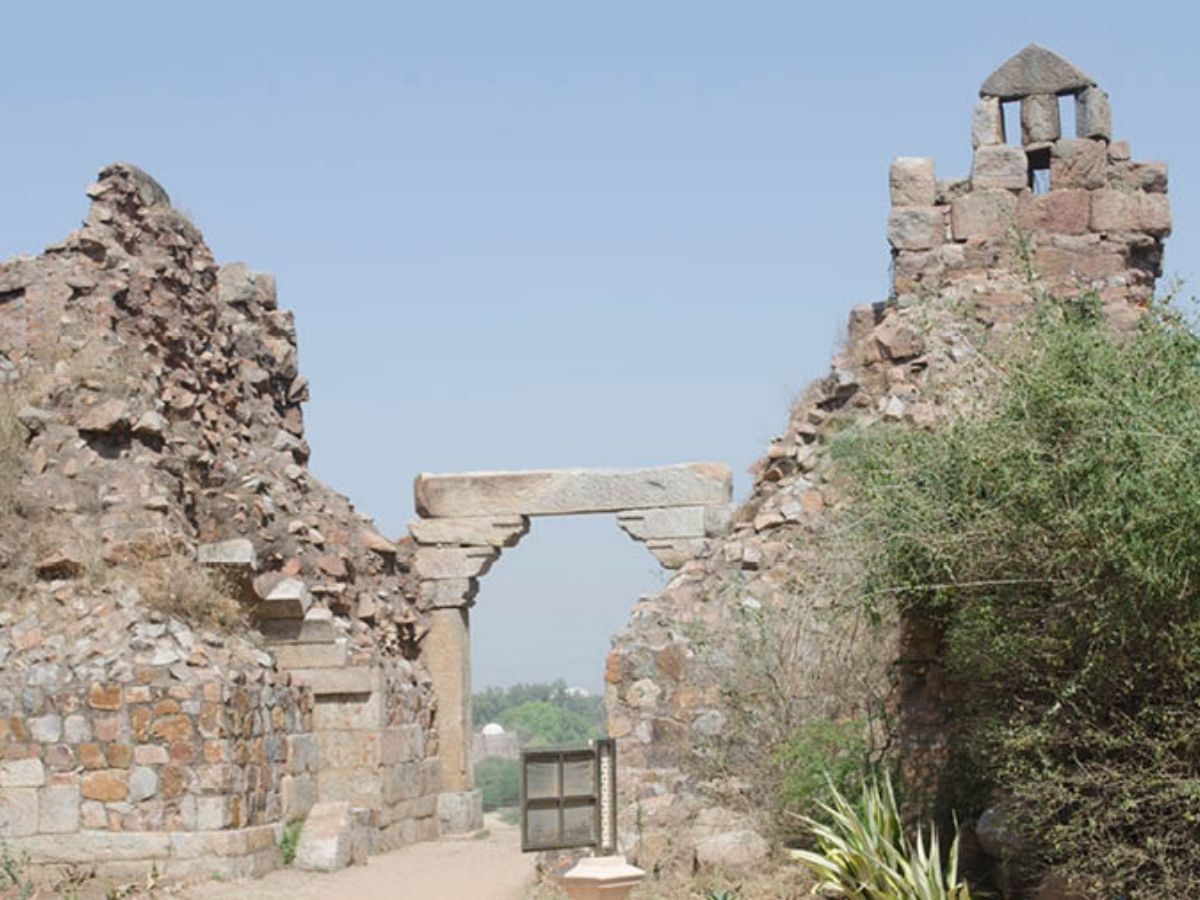
Adilabad Fort
Delhi, being a city with a rich historical heritage, is home to several forts, some of which are not as widely known as the iconic ones like the Red Fort or Purana Qila. These forts are best for one to unwind as they draw fewer crowd despite the spectacle they offer.
Before pollution chokes the city with the onset of winter, Delhiites can visit these places.
1. Qudsia Bagh: A historic garden located in North Delhi, near the old city walls, it is named after Qudsia Begum, the wife of Mughal Emperor Muhammad Shah. The construction of Qudsia Bagh began in 1748 during the reign of Muhammad Shah and was completed in 1756. The garden is known for its historical significance, architectural elements, and its role in the cultural and social life of Delhi.
It is open to the public and serves as a public park. Visitors can stroll through its lush greenery, enjoy the architectural remnants, and experience a sense of the historical charm that once defined this Mughal garden.
2. Adilabad Fort: Situated in the Mehrauli Archaeological Park, the Adilabad Fort is often overshadowed by the mighty Tughlaqabad Fort and the nearby Qutub Minar. Built during the 14th century, the fort offers a glimpse into medieval military architecture. It provides panoramic views of the surrounding area and is a tranquil spot away from the bustling city.
3. Salimgarh Fort: It stands on an island along the Yamuna River and is often overlooked due to its proximity to the Red Fort. Built by Sher Shah Suri, it later played a role during the Mughal era. The fort offers a serene escape and a different perspective of the city.
4. Darya Khan’s Tomb and Bala Hisar: Near the Delhi Gate of the historic walled city lies the lesser-known Darya Khan’s Tomb. Adjacent to it is Bala Hisar, a small fort, which is now mostly in ruins. These structures date back to the 16th century and are often missed by visitors.
5. Jahaz Mahal: A historical monument located in Mehrauli, this architectural gem dates back to the Lodi dynasty, specifically to the reign of Sultan Muhammad Shah Tughlaq, who ruled in the 15th century. The name “Jahaz Mahal”, meaning “Ship Palace,” is derived from its long and ship-like structure, giving it the appearance of a floating ship.
V K Saxena approves 20 per cent reservation, age relaxation, and test exemption for ex-Agniveers…
The fair at Gandhi Darshan brings together emerging and senior artists, showcasing over 200 artworks…
State Names Authority approves renaming of two metro stations and modifies seven others, aligning station…
Over 200 artisans showcase traditional crafts at Jawaharlal Nehru Stadium, including Narmada pebble art and…
According to the police, Army Public School in Dhaula Kuan and Air Force Bal Bharti…
Delhi's air quality remained poor, with the average Air Quality Index (AQI) settling at 207,…